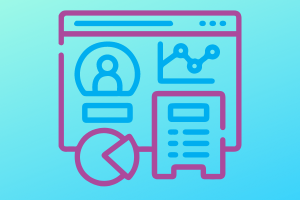 Today’s guest blogger is Oorwin, a leading SaaS-based platform for AI-driven talent acquisition & management and recruiter productivity & effectiveness. Oorwin’s platform is used to manage your entire talent intelligence lifecycle. In this post, learn how AI can play a role in performance reviews.
Today’s guest blogger is Oorwin, a leading SaaS-based platform for AI-driven talent acquisition & management and recruiter productivity & effectiveness. Oorwin’s platform is used to manage your entire talent intelligence lifecycle. In this post, learn how AI can play a role in performance reviews.
One of the industries that has been revolutionized by artificial intelligence (AI) is performance management. It is now used in the performance review process, which managers have traditionally carried out manually. Research conducted by McKinsey shows almost 50% of businesses today have implemented Artificial Intelligence in one of their operation sectors. The use of AI in performance review has proved to be a game-changer, enabling organizations to automate the process, reduce errors, and provide real-time analysis.
Automation in Performance Reviews
AI automates the performance review process by collecting data on employee performance from various sources, such as emails, calendars, and project management tools. The data is analyzed and processed to assess an employee’s performance objectively. AI algorithms are trained to identify patterns in the data and provide insights into areas where employees need improvement.
Benefits of using AI in Performance Reviews
Some of the most significant benefits of performance reviews are:
No human errors
AI eliminates human errors and biases that can creep into performance review processes. Unlike humans, AI algorithms do not have personal biases that could affect performance review ratings. This ensures that the performance review process is objective and unbiased, leading to fair and accurate assessments.
Projections based on more comprehensive data
AI algorithms analyze vast amounts of data from multiple sources, providing a more comprehensive view of employee performance. This allows managers to make informed decisions about employees’ career development, identify areas of improvement and provide actionable feedback.
Continuous assessment and real-time analysis
AI enables continuous assessment of employee performance, as it constantly collects data on employee activity. This ensures managers can identify and address performance issues in real-time rather than waiting for the annual performance review cycle. The real-time analysis allows managers to provide timely feedback and coaching, leading to better employee performance.
Better managers
AI gives managers a data-driven approach to performance management, allowing them to make informed decisions about employee development and identify potential organizational leaders. With AI-powered insights, managers can take a more strategic approach to talent management, ensuring that employees are developed and retained.
Employee engagement
AI enhances employee engagement by providing personalized feedback and career development recommendations. By providing real-time feedback, employees can address performance issues proactively, improving their performance and job satisfaction. This leads to increased employee engagement and productivity.
Challenges of AI in Performance Reviews
While there are numerous benefits to using AI in performance reviews, there are also several challenges that organizations must overcome. These challenges include:
Cost
Implementing AI in the performance review process can be costly, requiring specialized software and training. Organizations must invest in the right technology and infrastructure to ensure the AI-powered performance review process is effective and efficient.
Lack of human element
AI lacks the human element essential for building relationships and providing emotional support. The performance review process allows managers to provide feedback, support, and guidance to employees. AI may not be able to replace the human connection, leading to a less personalized experience for employees.
Loss of crucial human potential
AI can only provide insights based on data and algorithms. It may be unable to identify employee potential that may not be evident in the data. This could lead to losing crucial human potential within the organization, limiting its ability to innovate and grow.
Conclusion
AI has transformed the performance review process for managers, providing organizations with a data-driven approach to performance management. With AI-powered insights, managers can identify areas of improvement, provide personalized feedback and coaching, and develop employees’ careers.
While there are challenges to implementing AI in performance reviews, the benefits far outweigh them. Organizations that embrace AI-powered performance management will gain a competitive advantage, leading to better employee engagement, increased productivity, and improved business outcomes.
Frequently Asked Questions
What is AI?
AI stands for Artificial Intelligence. It refers to developing computer systems that can perform tasks that typically require human intelligence, such as perception, reasoning, learning, and problem-solving.
How can AI be used in performance reviews?
AI can be used in performance reviews by automating the collecting and analyzing of data on employee performance from various sources. This data is then used to provide objective assessments, identify areas of improvement, and provide personalized feedback and coaching to employees.
What are the benefits of AI in performance reviews?
The benefits of using AI in performance reviews include eliminating human errors and biases, providing projections based on comprehensive data, enabling continuous assessment and real-time analysis, helping managers make better decisions, enhancing employee engagement, and providing a data-driven approach to talent management.